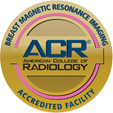Information Needed for Scheduling Appointments & Obtaining Medical Records:
The MRI Center only performs Magnetic Resonance Imaging (MRI) studies; you must have an order from an authorized healthcare provider. We can make an appointment with you over the telephone before you actually present the order to us, but the order must be available for you to examine and read back to us in answer to questions from our schedulers.
Patient Safety Tips Prior to the Procedure in Radiology
Because of the strong magnetic field used during the exam, certain conditions may prevent you from having a MRI procedure. When scheduling your appointment and prior to your exam, please alert our staff and technologist to the following conditions that may apply to you. The radiology staff will let then let you know whether you can have the MRI exam and whether the exam needs to be modified for your particular condition.
- Pacemaker
- Pregnancy
- Claustrophobia
- History of kidney problems
- Skin tattoos
- Neurostimulators (TENS-unit)
Implanted drug infusion device (i.e., insulin pump) - Exposure of metal fragments to your eye
- Artificial heart valves
- Aneurysm clips
- Cochlear implants
- Metallic implants and prosthesis
- Vascular stent or stent graft
- History as a metal worker
- Shrapnel or bullet wounds
- Dorsal column stimulators
- Allergy to iodine, or gadolinium
- History of diabetes
- Other conditions you believe to be relevant
Please leave your valuables at home, including jewelry, to prevent it from being lost, for they have to be removed prior to entering the scan room.
If you don’t want to change into hospital attire, please wear cotton clothing without any metal zippers, hooks, or buttons.
Please let us know if you need interpreting services, this can be arranged for you. Please bring a list of your current medications.
If you have claustrophobia, your doctor may prescribe an oral medication for you to take with you for your MRI appointment.
What can I expect before my MRI exam?
- There is little preparation for an MRI exam. Take your daily medications as you normally would, unless instructed otherwise. There are few dietary restrictions for an MRI. For those exams, you will be notified of the requirements.
- Please arrive at least 30 minutes prior to your exam and check in with the receptionist. You will need to complete the MRI screening form. The MRI Center Paperwork can be found HERE.
- If your clothes have any metal fasteners or metallic design, you will be asked to change into a hospital gown. A locker will be supplied to secure your belongings.
A technologist will verify your identification and the requested exam. Your screening form will be reviewed by the technologist in consultation with the radiologist if indicated. If MRI contrast is indicated for the exam, an IV catheter will be inserted in your arm by a nurse or technologist.
What can I expect during my MRI scan?
- The duration of the procedure will vary but the average is 20 minutes per body part. Please allow an additional 10 – 15 minutes per body part if contrast is requested.
- You will be required to lie still during the actual MRI scanning. Depending on the body part that is being examined, you may be instructed to hold your breath for up to 18 seconds.
- The magnet is permanently open on both ends. It is well lit and there is a fan for patient comfort. There is also a two way intercom system for communication between patient and technologist. The part of the body being scanned will be placed in the middle of the magnet.
- During the actual imaging, you will hear a loud intermittent banging noise. You will be provided with earplugs or head phones to minimize the noise during the procedure.
The technologist will also provide you with an alarm button to alert the technologist of any discomfort you may experience at any point during the MRI exam. - Some MRI exams require an injection of intravenous MRI contrast. Inform the technologist if you experience any discomfort during the injection.
What can I expect after my MRI scan?
- If a dye injection is used, the IV is removed from the arm before you go home.
- Allergic reaction from gadolinium dye is extremely rare. However, if you experience symptoms such as rash, hives, or shortness of breath, you should notify the technologist immediately if you are still at the imaging facility, or call your doctor or go to the nearest hospital if you have already left the imaging facility.
- In the event that sedation is needed (such as for claustrophobia), you will be sent home once awake and alert. If you receive sedation, someone must drive you home.


